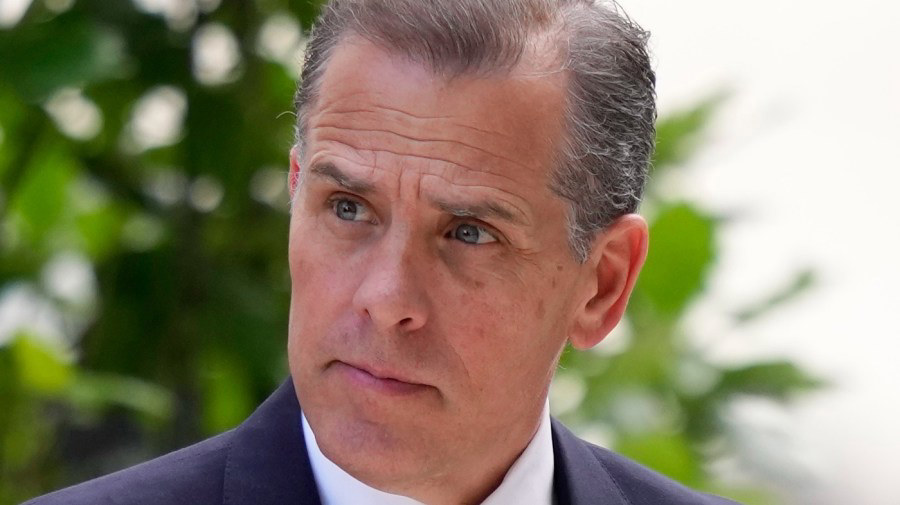Controversies And Concerns: Presidential Pardons In Trump's Second Term

Table of Contents
The Scope of Presidential Pardon Power
The constitutional basis for presidential pardon power lies in Article II, Section 2, Clause 1 of the US Constitution, which grants the President the power "to grant Reprieves and Pardons for Offenses against the United States, except in Cases of Impeachment." This broad language has been interpreted and reinterpreted throughout history, leading to ongoing discussions regarding its limits.
- Article II, Section 2, Clause 1 of the US Constitution: This clause explicitly grants the President the power to pardon offenses against the United States. This authority extends to federal crimes, encompassing a wide range of offenses.
- Exceptions to Presidential Pardon Power: Importantly, the Constitution explicitly excludes the power of pardon in cases of impeachment. Furthermore, presidential pardons generally do not extend to state-level crimes; these remain under the jurisdiction of state courts and governors.
- Historical Context: The history of presidential pardons is filled with controversial examples. President Gerald Ford's pardon of Richard Nixon after the Watergate scandal remains one of the most debated instances, sparking intense public reaction and raising questions about the appropriate use of this power. Understanding these historical precedents is crucial for evaluating potential future scenarios.
Concerns Regarding Abuse of Power
The expansive nature of the presidential pardon power raises significant concerns about the potential for abuse. The possibility of using pardons for political gain, personal benefit, or to shield associates from accountability represents a serious threat to the integrity of the justice system.
- Pardoning Associates and Family Members: A significant concern involves the potential for a president to pardon associates or family members facing criminal charges, shielding them from legal consequences. This practice raises questions about fairness, equality under the law, and the appearance of impropriety.
- Erosion of Public Trust: The arbitrary or politically motivated use of presidential pardons can severely erode public trust in the justice system. When high-profile individuals are pardoned without sufficient justification, it undermines faith in the rule of law and the impartiality of legal processes.
- Lack of Accountability for High-Profile Crimes: The power to pardon allows a president to effectively nullify criminal convictions, thereby reducing accountability for even serious offenses. This creates a perception that powerful individuals are above the law.
- Undermining Ongoing Investigations: Granting a pardon before the completion of an investigation can impede the pursuit of justice and obstruct efforts to uncover the full extent of criminal activity.
Specific Cases and Potential Scenarios (Hypothetical Second Trump Term)
Analyzing potential scenarios requires considering ongoing investigations and the actions of past administrations. While predicting the future is impossible, evaluating past behavior offers valuable insight.
- Individuals Potentially Seeking Pardons: Depending on the outcome of various ongoing investigations, numerous individuals associated with past administrations might seek presidential pardons. Speculation surrounding potential pardons inevitably leads to increased public scrutiny and debate. (Note: Mentioning specific names here requires careful consideration of legal and ethical implications and should be done with appropriate sourcing.)
- Potential Legal Challenges to Pardons: Pardons granted by a president are not without legal challenges. Challenges can arise based on the grounds for the pardon, the procedural aspects of its issuance, and potentially constitutional arguments.
- Impact on Ongoing Investigations and Prosecutions: The granting of a presidential pardon can significantly impact ongoing investigations and prosecutions. It can halt investigations, limit the ability to obtain further evidence, and affect future legal proceedings.
- Political Ramifications: The political fallout from granting certain pardons can be significant, impacting public opinion, political alliances, and even election outcomes.
The Role of Public Opinion and Media Coverage
Public perception and media portrayal are critical factors shaping the debate surrounding presidential pardons. The narrative presented by the media significantly influences public opinion and can, in turn, influence a president's decision-making.
- Media Narratives Shaping Public Opinion: Media coverage, particularly from partisan sources, can frame presidential pardons in vastly different ways, influencing public opinion and contributing to polarization.
- Public Opinion Influencing Presidential Decisions: While a president is not obligated to respond to public opinion, the potential political consequences of unpopular pardon decisions can affect their willingness to grant them.
- Partisan Polarization: The issue of presidential pardons is often highly politicized, with different partisan viewpoints often clashing, making objective analysis challenging.
Conclusion
The debate surrounding presidential pardons is complex and carries immense weight. The potential for abuse of power, the erosion of public trust, and the impact on the justice system are all serious concerns, particularly in the context of a second Trump term. The scope of this power, combined with the potential for political maneuvering, necessitates careful consideration and ongoing scrutiny. Understanding the nuances of presidential pardons is crucial for informed civic engagement. Continue to research and engage in conversations about the implications of this significant power. Further discussion and analysis are needed to ensure accountability and maintain public confidence in the justice system. Informed understanding of presidential pardons and their potential consequences is essential for a healthy democracy.

Featured Posts
-
 Jill Biden Aides Warning Stay Out Of Politics
May 16, 2025
Jill Biden Aides Warning Stay Out Of Politics
May 16, 2025 -
 Paddy Pimblett Targets Ufc Title Shot After Ufc 314 Chandler Fight
May 16, 2025
Paddy Pimblett Targets Ufc Title Shot After Ufc 314 Chandler Fight
May 16, 2025 -
 Open Ai Unveils New Tools For Voice Assistant Development
May 16, 2025
Open Ai Unveils New Tools For Voice Assistant Development
May 16, 2025 -
 Tam Krwz Ke Jwte Pr Mdah Ka Qdm Kya Hwa
May 16, 2025
Tam Krwz Ke Jwte Pr Mdah Ka Qdm Kya Hwa
May 16, 2025 -
 Analysis Of Foot Lockers Q4 2024 Earnings The Lace Up Plans Trajectory
May 16, 2025
Analysis Of Foot Lockers Q4 2024 Earnings The Lace Up Plans Trajectory
May 16, 2025
